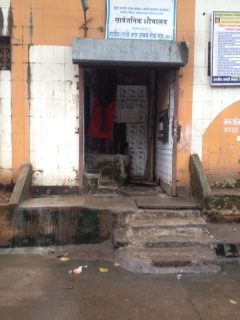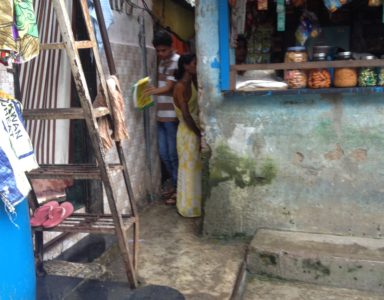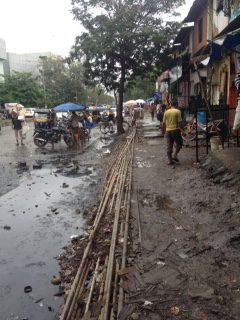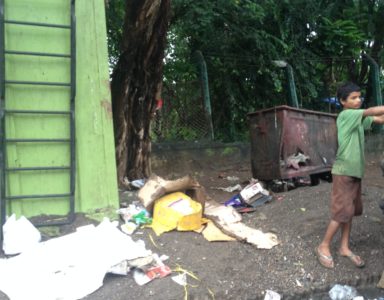The Dangers Women Face in Dharavi
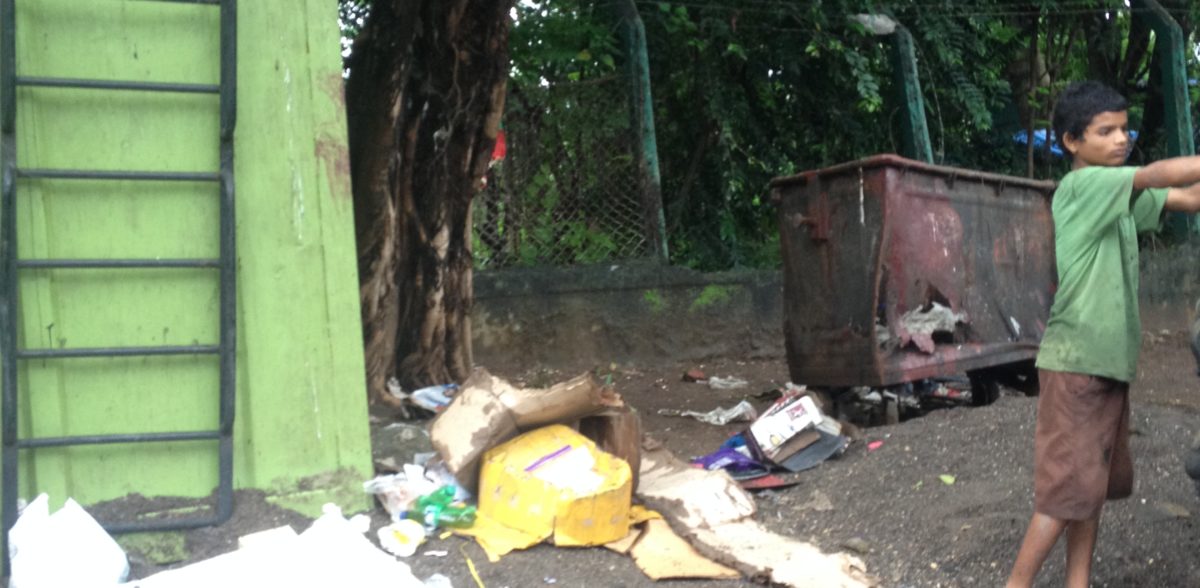

Sumati Thusoo is a Program and Outreach Officer with Safecity. She is responsible for engaging with the communities and establishing and maintaining partnerships with NGOs and colleges, conducting workshops with colleges and raising awareness regarding sexual violence and providing input for developing appropriate training programmes. Her past work has focused on the effects of conflict on access and mobility of women, and her thesis looked at the experiences of Kashmiri women with conflict.
The Dangers Women Face in Dharavi
“Kya madam, chhed chhaad ke baare mein baat karte ho? Yahaan hum thak gaye hain. Nasha karke log humare darwaaze pe baithte hai. Unko gaali beeli dena toh roz ka hai.”
Rajiv Gandhi Nagar in Dharavi is characterised by its small, moss covered, dingy lanes that can only be traversed on foot. The metal sheet covered shanties that cover the sides of these lanes provide for little space for its many inhabitants to walk by. This is a part of the city that lives a marginalised existence inside the city. But the sheer density of its inhabitants is sharply contrasted by the lack of civil amenities and shear government apathy.
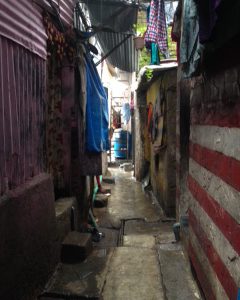
The session organised by MAVIM (Mahila Vikas Maha Mandal) and my interaction with its brave women was both interesting and informative. Our meeting with its 30 odd members transversed into a Focus Group Discussion (FGD) with 10 of its members. These are strong women who are striving to attain financial stability and independence, yet there is a strong feeling of disheartenment towards the system and it does not take long for women to open up. ‘Akka’ a fifty something lady is a native of Southern India in an otherwise Marathi dominated Dharavi. Akka told us that she tried to raise her voice against social evils but the systemic structures have failed her time and again, just like it has many others living in the same locality. She says that she has grown tired of talking about harassment. There are people who do drugs right at their doorsteps. Yelling and screaming at them has become a part of their daily routine. Going and complaining to Police is of no avail either. She had gone to the Police Station to complain about a miscreant. The Police officer asked her to come inside and have a cup of tea. But by the time she reached home, the man that she had complained about had been informed by the Police that she had complained against him. He threatened her. She thinks the policemen take bribes from those complained about and take no action against them. She feels scared for her life.
Another woman, Anjali who has a 17 year old daughter Komal, said that she has to watch over her daughter. Though the watchman comes at night the locality in which they live is unsafe during the daytime as well. She plans her day according to her daughter’s tuition as she has to accompany her daughter to her tuition classes and fetch her back as well.
There seems to be a sense of deep distress amongst the inhabitants of the community which is cutting across the age spectrum.
Sunita Thorat who is in her later 20’s added to the discussion. She said that the Maharashtra Nature Park that has been constructed by the Government for recreational activities has a patch that has been occupied by drug addicts. When these drug addicts sit in front of someone’s house, one can still yell and scream at them but when they do drugs in public spaces, one can not even complain because a public space is a shared resource. Not just that, even her own brother hangs about with them when he doesn’t get a cigarette at home. Not only are they vitiating the spaces shared by the community but also influencing private spheres in a different way.
The women have been failed by the system on so many occasions that they have lost hope of any corrective action. Also the failure of the authorities to take concrete action against people who make the society unsafe has left them scared of even raising complaints for fear of backlashes.
In an ethnically diverse community such as Rajiv Gandhi Nagar that has been a target of politicians to play divisive politics, it is extremely important to mobilize the communities and bring them together for a common cause. Existent social evils like drug addiction in the area is an issue that makes the area unsafe not just for one community but for all, resulting in restriction of accessibility and mobility. While the women who are a part of Self- help groups are much aware of their rights, it is also important to develop leadership skills in them so that they can become the catalyst of change for those who have yet not left the boundaries of their private sphere. Additionally, there is an eminent need of systematic intervention in Rajiv Gandhi Nagar to address the various problems faced by the women there and also to rekindle their faith in the system. Which of the two will prove more difficult to solve, only time will tell.

